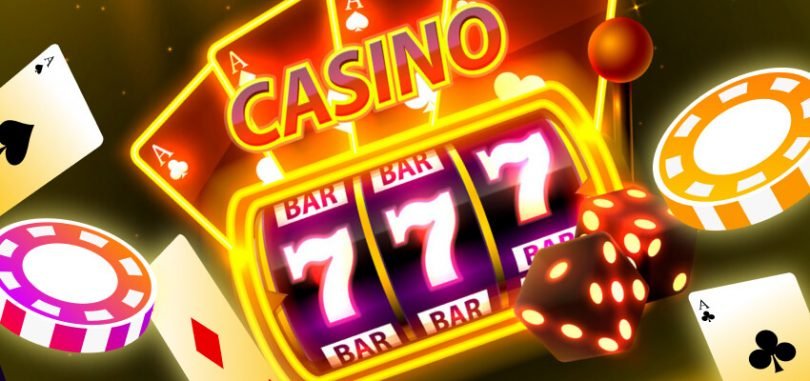Gambling Addiction Warning Signs to Recognize Early

Gambling Addiction: Warning Signs to Recognize Early
Gambling addiction, also known as compulsive gambling or pathological gambling, is a condition that affects millions of people worldwide. It can have devastating effects on an individual’s life, relationships, and financial well-being. Recognizing the early warning signs of gambling addiction is crucial for both the individuals affected and their loved ones. In this article, we will delve into the common signs of gambling addiction and provide practical advice on how to seek help. For more information, you can also visit Gambling Addiction: Warning Signs to Watch krikya1.com/.
Understanding Gambling Addiction
Gambling addiction is classified as a behavioral addiction, similar to other forms of addiction like substance abuse. It involves an uncontrollable urge to gamble, even when it has negative consequences. Unlike other addictions, gambling does not require a physical substance; instead, it is tied to the excitement and thrill of risking money or valuables on uncertain outcomes.
Common Warning Signs of Gambling Addiction
1. Preoccupation with Gambling
One of the first signs of gambling addiction is a preoccupation with gambling activities. This may manifest as constant thoughts about previous gambling experiences, planning future gambling activities, or discussing gambling with others. If you find yourself unable to focus on work, family, or other responsibilities because of thoughts about gambling, it may indicate a developing problem.
2. Using Gambling as a Means to Escape
Many individuals with gambling addiction use gambling as an escape from other problems in life. If you notice that you tend to gamble when you’re feeling stressed, anxious, or depressed, this could be a significant warning sign. The thrill of gambling can provide temporary relief, but it often leads to deeper issues and increased emotional pain over time.
3. Increasing the Amount of Money and Time Spent Gambling
Another concerning sign is the need to gamble with larger amounts of money over time to achieve the same thrill. If you find yourself gambling more frequently or for larger sums than you originally intended, this is a red flag. This behavior often leads to substantial financial losses and can severely affect your quality of life.
4. Chasing Losses
Chasing losses is a common behavior among those struggling with gambling addiction. This involves increasing the amount of money bet in an attempt to recover lost funds. This cycle can lead to a devastating financial spiral, making the problem worse. If you find yourself gambling more intensely because you’ve lost money, it’s important to recognize this as a significant warning sign.

5. Lying About Gambling
When individuals become addicted to gambling, they often lie about the extent of their gambling behavior. This may involve deceiving friends or family about how much time or money is being spent on gambling activities. If you feel the need to hide your gambling from others, it’s a sign that your behavior may have crossed a line into addiction.
6. Neglecting Responsibilities
Gambling addiction can lead to a neglect of personal, professional, and family obligations. If you find yourself missing work, ignoring family events, or neglecting daily responsibilities because of your gambling activities, it is crucial to take a step back and assess the situation. This neglect can have long-lasting effects on relationships and overall life satisfaction.
7. Borrowing Money to Gamble
Many individuals with gambling addiction resort to borrowing money from friends, family, or even financial institutions to fund their gambling habits. If you find yourself asking for money or using credit cards to cover losses, it’s a significant sign that gambling has become a problem. This behavior can lead to financial instability and trust issues with those around you.
The Impact of Gambling Addiction
Gambling addiction does not only affect the individual but also has a ripple effect on family and friends. Relationships can become strained due to financial instability, deceit, and lack of communication. Additionally, individuals may experience mental health issues such as anxiety and depression as a result of their gambling behavior.
Seeking Help
If you or someone you know is exhibiting warning signs of gambling addiction, it’s important to seek help as soon as possible. There are various resources available, including counseling services, support groups, and hotlines specifically geared towards problem gambling. The National Council on Problem Gambling provides valuable resources and **helpful information** to those affected by gambling addiction.
Self-Help Strategies
In addition to seeking professional help, there are self-help strategies that can be beneficial in overcoming gambling addiction:
- Set limits on time and money spent gambling.
- Identify triggers that lead to gambling urges and develop coping strategies.
- Engage in alternative activities that provide a sense of fulfillment or excitement.
- Discuss your feelings and experiences with trusted friends and family members.
- Consider joining a support group like Gamblers Anonymous.
Conclusion
Gambling addiction is a serious condition that can lead to devastating consequences. By being aware of the warning signs, individuals can take proactive measures to seek help and regain control over their lives. If you or someone you know is struggling with gambling addiction, remember that there is help available, and recovery is possible. Don’t hesitate to reach out for support and take the first step towards a healthier, happier future.
